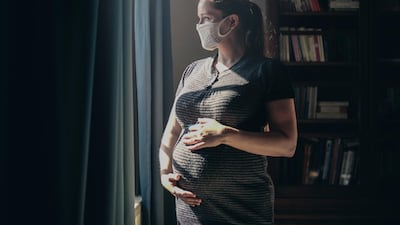Pregnant women with serious underlying health issues should consider getting the coronavirus vaccine, a senior paediatrician in Britain said on Friday.
Prof Anthony Costello, a former director of the Institute for Global Health at the University College London, said studies showed pregnant women to be more susceptible to serious illness from Covid-19 because they are immunosuppressed.
The Oxford/AstraZeneca and Pfizer/BioNTech shots are currently available to extremely clinically vulnerable groups, such as those aged over 80 and frontline medical workers, but calls are intensifying to extend that to other groups.
Health authorities in England have yet to recommend that pregnant women take the vaccine but those in high-risk categories are advised to speak to their obstetrician about the option.
“Yes, pregnant women are more vulnerable,” Prof Costello told an Independent Science Advisory Group meeting on Friday. “Pregnant women are immunosuppressed for the very good reason that they want to avoid rejecting their baby.”
Research in Sweden showed expectant women who contract the virus are about six times more likely to end up in an intensive care unit compared with their peers, Prof Costello said.
Another study of 90,000 women in the US showed they were 70 per cent more likely to end up on a ventilator, but not more likely to die, because they tend to be younger and fitter than the average population.
“I was talking to a friend of mine who's an intensive care unit doctor in London and he had seen a pregnant woman die from Covid, so this is a serious issue,” Prof Costello said.
“Initially, the government said we shouldn't vaccinate children and pregnant women. I believe that that was changed by the chief medical officer to make it a clinical decision.
“My view would be that obviously you want to avoid any so-called teratogenic effects, such as deformities in the first 12 weeks, but later on if you've got a lot of underlying risk factors – let's say you've got diabetes or gestational diabetes or obesity or hypertension – there is an argument, actually, for vaccinating." said Prof Costello.
“Pregnant women are more vulnerable. They should be fine as very, very few will die of the condition but I think the decision about vaccination is a very open one.”
A report in December by the UK’s Joint Committee on Vaccination and Immunisation, an independent expert advisory committee that advises UK health departments on immunisation, said there was “insufficient evidence to recommend routine use of Covid-19 vaccines during pregnancy”.
However, in a policy rethink the JCVI advised that if a pregnant woman is clinically extremely vulnerable, then she should discuss the option of vaccination with a doctor.


